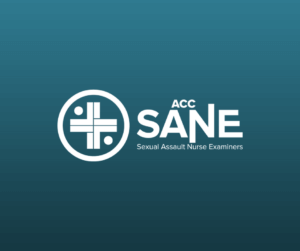Sexual Assault Due to Negligent Security» Do You Have a Valid Case?
We are Selective When it Comes to Sexual Assault & Abuse Cases, Only Taking on Clients Who Have Suffered Sexual Assault or Abuse Because of a Business’, Corporation’s, or other Organization’s Negligence.
Types of Sexual Assault Cases We Consider
Sexual assault cases related to premises liability typically arise due to negligent security or unsafe conditions on a property. Here are the different types of sexual assault cases that may fall under premises liability law:
1. Inadequate Security
- Lack of security personnel in high-risk areas (e.g., parking lots, hotels, apartment complexes, nightclubs)
- Failure to hire trained security guards
- Guards not patrolling properly or ignoring suspicious activity
2. Poor Lighting
- Dimly lit or dark parking garages, stairwells, or walkways making it easy for attackers to hide
- Burnt-out or non-functional security lights in hallways, common areas, and outdoor spaces
3. Broken or Non-Functional Security Equipment
- Broken door locks in hotels, apartments, or offices allowing unauthorized access
- Malfunctioning security cameras or failure to monitor surveillance footage
- Non-operational emergency call boxes or alarms
4. Negligent Hiring and Background Checks
- Employers failing to conduct background checks on employees working in hotels, apartment complexes, or businesses
- Hiring individuals with a known history of violent behavior or sexual offenses
- Keeping an employee on staff despite prior complaints of misconduct
5. Failure to Respond to Prior Criminal Activity
- Property owners ignoring reports of previous assaults or criminal activity in the area
- Failing to warn tenants, guests, or customers about known risks
- Not implementing additional safety measures after prior incidents
6. Assaults in Rideshares, Hotels, and Public Transportation
- Rideshare companies failing to properly vet drivers with a history of violence
- Hotels failing to prevent unauthorized access to rooms or common areas
- Assaults occurring in subway stations, buses, or other transit areas due to lack of security
7. Unsafe College Campus or Dormitory Conditions
- Universities failing to address reports of sexual violence on campus
- Lack of proper security measures in dormitories, parking lots, or student housing
- Inadequate handling of reports or failure to expel known offenders
8. Negligence in Bars, Nightclubs, and Event Venues
- Not removing known predators from the premises
- Failure to monitor secluded areas like restrooms or VIP sections
- Lack of security or failing to conduct background checks on employees
9. Assaults in Apartment Complexes and Gated Communities
- Faulty or non-existent security gates allowing unauthorized access
- Landlords ignoring previous reports of trespassers or suspicious individuals
- Failure to alert residents of attacks
- Failure to install or maintain security systems in common areas
10. Sexual Abuse in Nursing Homes and Care Facilities
- Nursing homes hiring staff with prior abuse allegations
- Understaffed facilities leading to vulnerable residents being assaulted
- Ignoring reports of sexual misconduct by staff, other residents, or visitors
How a Premises Liability Lawyer Can Help With Sexual Assault in Georgia

Sexual abuse or assault is traumatic and devastating for survivors and their families.
Our premises liability attorneys understand the severity of sexual assault and can help you navigate the legal system to hold your attacker and others responsible accountable when your assault could have been prevented.
We will not charge you for a consultation and every one of our Georgia sexual assault cases is handled with sensitivity and discretion. We have offices in Athens and Lake Oconee, and take cases throughout Georgia.
Reach us by phone at 706-354-4000 or fill out our free, no-obligation contact form and someone will be in touch.
Premises Liability in Sexual Assault Cases
Business owners are required by law to protect patrons. This includes preventing foreseeable sexual assaults at hotels, bars, nightclubs, restaurants, concert venues, apartment complexes, parking garages, schools, rehab facilities, treatment centers, hospitals and other facilities. It’s important to determine why the criminal was able to attack in the first place. Property owners are required to take proper precautions to prevent such attacks like including adequate lighting, fences, or performing appropriate background checks. Hospitals and other medical facilities or long-term care facilities are held to a certain standard of care for patients.
It’s crucial that anyone’s negligence that may have led to your assault, that person or persons be held accountable to prevent future assaults. A business owner or manager must prove that the business, facility or organization has exercised reasonable care and implemented proper management procedures to successfully defend against a premises liability claim. Many times, this isn’t the case and criminal activity could have been stopped if it weren’t for negligence.
If you have suffered a sexual assault due to negligent practices by a business or organization, we know this must be a difficult time. Please fill out the form below and tell us a little about your potential case. An attorney will reach out to you shortly:
There is Help. You Are Not Alone.

SANE, Inc. (Sexual Assault Nurse Examiners) offers help and hope for survivors of sexual assault in Northeast Georgia. The non-profit 501 (c) 3 agency provides both forensic and medical services at no cost to survivors and their families. Even if you don’t want to report the assault to the police right away, it’s still important to have a medical exam to make sure you are all right.
Click the box above for more information
Forms of Sexual Violence
While everyone is potentially at risk for experiencing sexual violence or abuse at some point in their life, there are people who may be more vulnerable based on life circumstances.
- Child Sexual Abuse
- Elder Sexual Abuse
- Sexual Abuse by a Medical Professional
- Sexual Abuse of a Person with a Disability
- Prisoner Abuse
- Military Abuse
- Sexual Abuse by a Teacher or Coach
- Sexual Abuse by a Religious Leader
What Are the Effects of Sexual Violence?
Sexual violence in any form can have emotional, psychological, and physical effects on a survivor. Depression, anxiety, and post-traumatic stress disorder can make it difficult for a survivor to adjust in every-day circumstances. It’s normal for survivors to have feelings of sadness, hopelessness, and fear following a traumatic experience such as sexual violence or abuse. Flashbacks, intentionally or subconsciously changing your routine or behavior, difficulty sleeping, being startled easily, being prone to bouts of crying, or losing interest in activities you formerly found joy in is also common.
Other Effects of Sexual Assault May Include:
- Soreness
- Bleeding
- Difficulty walking or sitting
- Broken bones
- Involuntary shaking
- Post-traumatic Stress Disorder
- Shock
- Numbness
- Feelings of helplessness
- Feelings of vulnerability
- Fear
- Self-blame or guilt
- Dissociation
- Substance Abuse
- Sexually Transmitted Diseases
- Self-harm
- Sexual dysfunction
- Eating disorders
- Pregnancy
- Attempted Suicide
- Suicide
Some important things to keep in mind:
- Georgia law requires business owners to take reasonable measures to protect people on their property
- Property owners must provide adequate security for customers or tenants
- Businesses that are aware of a previous crime that occurred on the property should take extra precautions
- Hospitals, facilities and schools have a responsibility to protect patients and students
- Organizations should always run background checks prior to hiring staff
- Apartment complexes and other businesses should provide adequate outdoor lighting
- If a crime occurs, all residents or patients should be notified of the crime
Your Rights Under the Criminal Justice System
Below is Georgia’s Crime Victim’s Bill of Rights.
- The right to be treated fairly and with dignity
- The right to proceedings free from unreasonable delay
- The right to reasonable, accurate and timely notice of:
- An arrest warrant issued for the accused
- The accused’s arrest
- The condition that the accused is prohibited from contacting the victim
- The accused’s release or escape from custody
- Any court proceeding where the release of the accused is considered
- Any scheduled court proceeding changes
- The accused’s release
- The right to be present at all criminal proceedings in which the accused has the right to be present
- To not be excluded from any scheduled court proceedings except as provided in O.C.G.A. 17-17-1 or otherwise provided by law
- The right to a waiting area during proceedings that’s separate from the accused and his/her friends or family
- To be reasonably heard at any court proceedings involving the release, plea or sentencing of the accused
- The right to waive notifications
- To be notified of community-based victim service programs
- To complete a Victim Impact Statement and have it presented to the court prior to trial
- To restitution as provided by law
- To refuse to submit an interview by the accused, accused’s attorney or agent
- To a requirement by court that defense counsel not disclose victim information to the accused
- To be notified by the Department of Behavioral Health and Development Disabilities if the accused is committed for an evaluation, is mentally incompetent to stand trial or is evaluated as not guilty by reason of insanity at the time of the crime — at least 10 days before the release or discharge of the accused
- To request not to be contacted by an inmate who was convicted of a criminal offense against them
- To be advised on how to file a complaint with the Judicial Qualifying Commission if a judge denies the victim’s right to be heard
- The right to designate a spouse, adult child, parent, sibling, or grandparent to act on behalf of him or her, when the victim is physically unable
- The right to be notified of availability of compensation through the federal government when the victim has been trafficked for labor or sexual servitude
View the Victim’s Bill of Rights here.
You Have the Right to Hold the At-Fault People Responsible
If you were assaulted due to a lack of security or an exploitive relationship, you may be entitled to compensation.
Examples of an Exploitive Relationship:
- Teacher
- Religious leader
- Doctor
- Nurse
- Therapist
- Camp counselor
- Coach
- Boss
You May be Entitled to Compensation for your Losses:
- Pain & Suffering
- Lost Wages
- Hospital Bills
- Doctor visits
- Counseling
- Other Treatment
We can help you navigate the legal system and hold those responsible for your attack accountable. Initial consultations are free and confidential. Every case is handled with sensitivity and discretion.
Get Help from Our Georgia Premises Liability Lawyers Today
At Blasingame, Burch, Garrard & Ashley, P.C., our premises liability attorneys are strong advocates for clients. We have the skills and experience needed to hold negligent businesses, organizations, or landowners responsible. If you or your loved one suffered a sexual assault due to someone else’s negligence, we can help.
To schedule a free, fully private consultation, contact our law firm at (706) 354-4000 or fill out the case review form. Headquartered in Athens, we handle sexual assault and abuse cases across Georgia. There is no fee unless we resolve your claims.
If You’re a Survivor of Sexual Assault, Below is a List of Organizations that Can Help You:
ACC SANE (Sexual Assault Nurse Examiners)
Georgia Network to End Sexual Assault
RAINN (Rape, Abuse & Incest National Network)
Call the National Sexual Assault Hotline at: 1-800-656-HOPE
